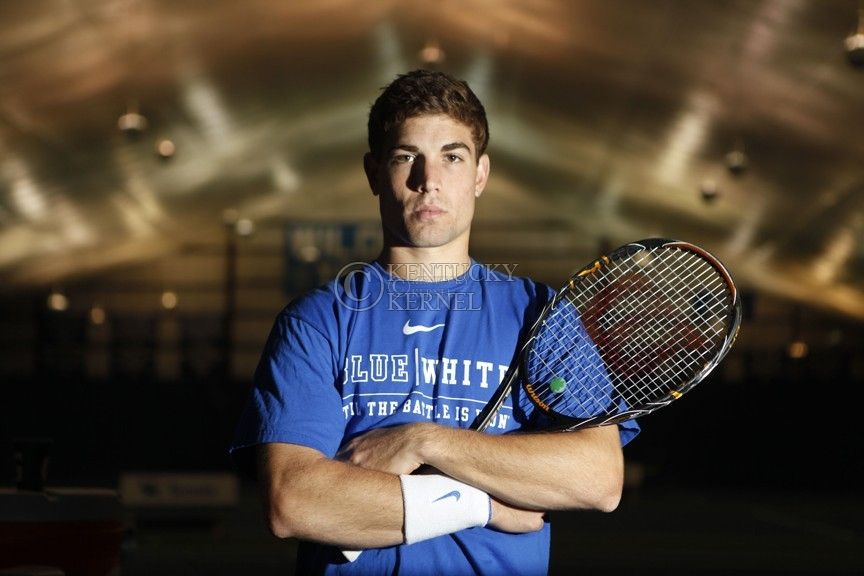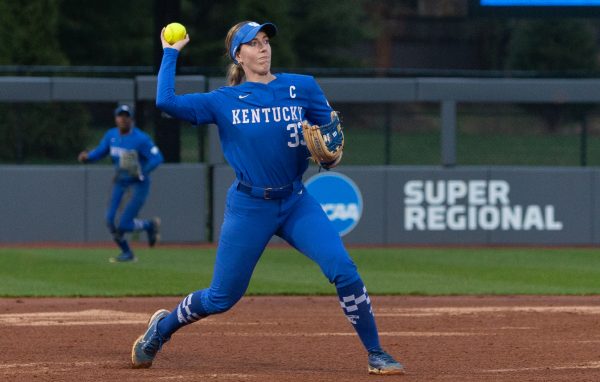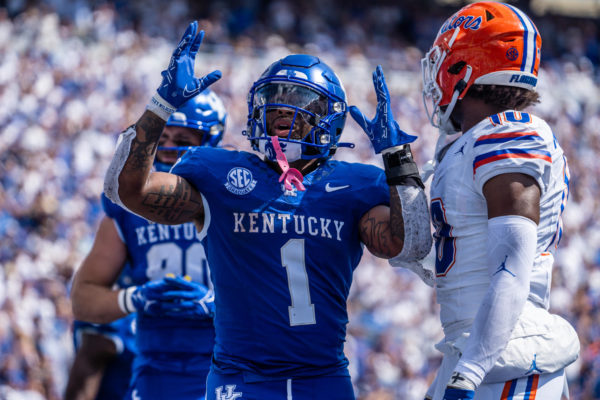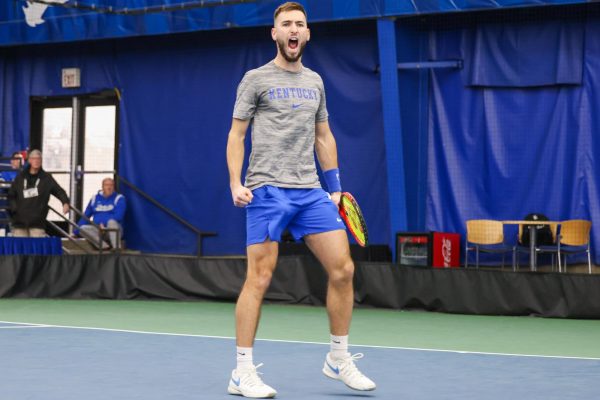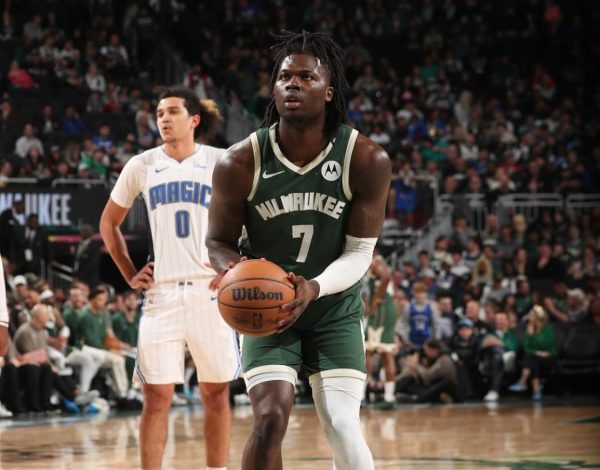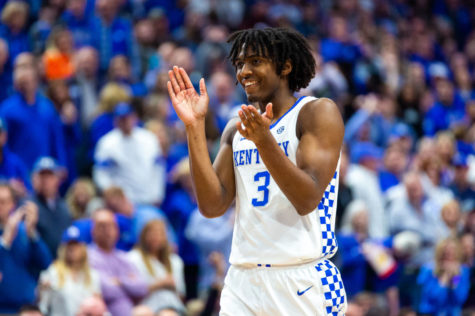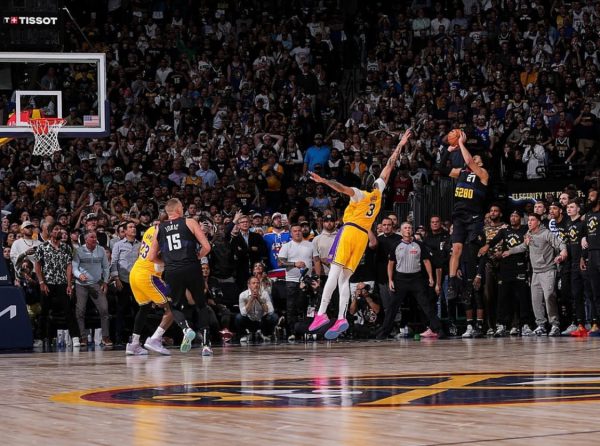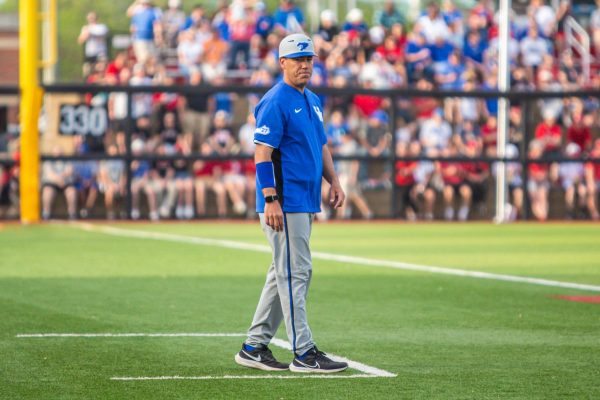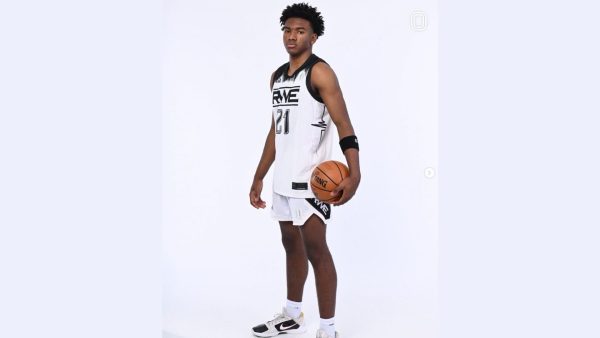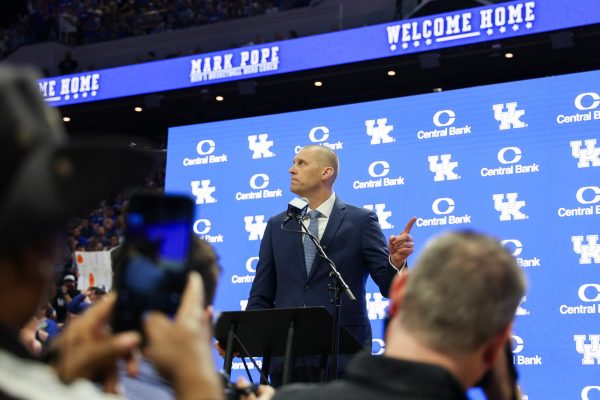Quigley rising: UK tennis sophomore finds groove in fall tournaments
November 6, 2009
UK men’s tennis sophomore Eric Quigley does not want the fall semester to end.
Quigley has gone on a hot streak this autumn, posting a 15-3 singles record through three tournaments, winning the Intercollegiate Tennis Association Ohio Valley Regional Championships as the tournament’s seventh seed, and booking his place at the ITA National Intercollegiate Indoor Championships being held Nov. 5 through 8 at Yale University, at the perfect time.
“I definitely have to put my tennis right up there with the best I’ve ever played,†Quigley said. “Just in key moments, I’ve stepped up and relaxed just to get my confidence, because I know it’s there and it’s been coming through when I need it to.â€
After a quiet 10-6 singles record in his freshman season, Quigley’s new-found confidence has helped not only with his most recent tournament victory, but also in his earlier fall victories over Oklahoma State’s Oleksandr Nedovyesov, the top-ranked singles player in the nation, and Virginia’s Sanam Singh, a 2009 NCAA men’s singles tournament semifinalist.
Entering the season as the No. 70 player in the ITA singles preseason rankings, Quigley himself would not have been so bold as to predict his start to the fall season.
“A lot of times I’ve played this good before, but not for this long,†Quigley said. “Maybe for a set or a couple of games, but just being able to do this for a whole match and for whole tournaments has definitely surprised me a little bit.â€
Even UK men’s tennis head coach Dennis Emery has been a little startled by Quigley’s winning ways.
“We recruited Eric as one of the top-10 players in the country and we thought he was going to have this kind of success,†Emery said. “But he’s really had it faster and come along faster than we thought.â€
The maturation process for Quigley began this summer by playing in lower-level pro tournaments and by just getting out on the court on a more regular basis. Quigley said that his familiarity with college life has also helped him focus on tennis.
One facet of Quigley’s game that has been better is his serving.
Emery said Quigley’s improved service has allowed him not only to score more points off of a serve, but also to stop his opponents from attacking his second serve as easily. Quigley has played more aggressively, but has not taken any extra risks in his game, Emery said.
A bit of inspiration, in the form of previous Wildcat tennis great Jesse Witten, also helped show Quigley what is possible when a tennis player finds a rhythm to his game; Witten made it to the third round of the 2009 US Open as a qualifier before falling to Novak Djokovic.
Quigley said he enjoyed seeing the support Witten received and added, “I’d like to be there someday.â€
However, Emery has been quick not to compare Quigley with Witten or Bruno Agostinelli, an All-American and a leader from last year’s UK tennis team, to avoid heaping pressure on Quigley.
“(Quigley has) focused on his own game, he hasn’t worried about other people, or periphery distractions,†Emery said.
The distractions might pile up, however, as Quigley’s recent success has garnered recognition from more observers than just his coach. Quigley was named to the U.S. national team for the Master’U BNP Paribas, an annual international collegiate competition in France to be held in December.
Whether it is an international tournament, the collegiate season or the ITA National Intercollegiate Indoor Championships, Quigley continues to live by the mantra he has adopted this fall.
“I feel like I’ve got a shot at everything,†Quigley said. “The way I’m playing right now … I don’t see why I can’t go all the way.â€












































































































































